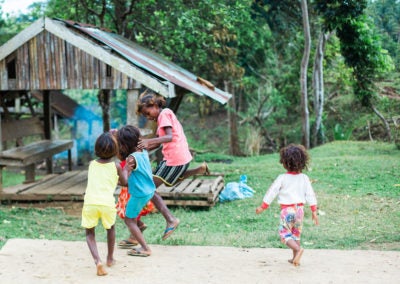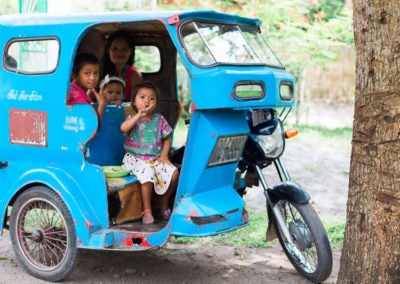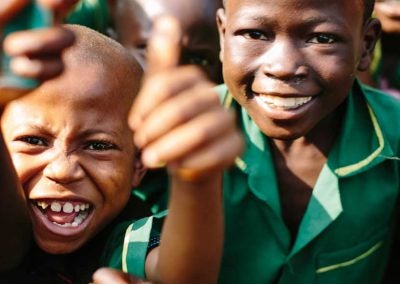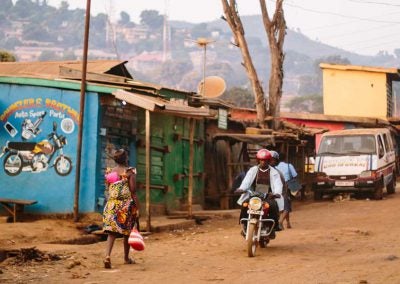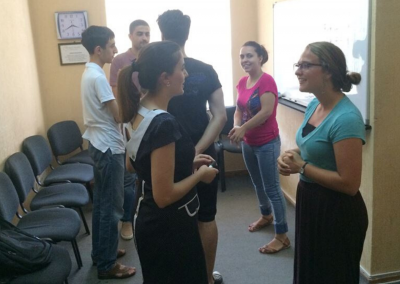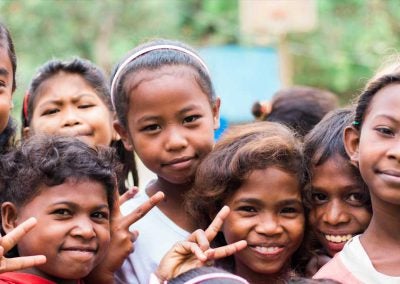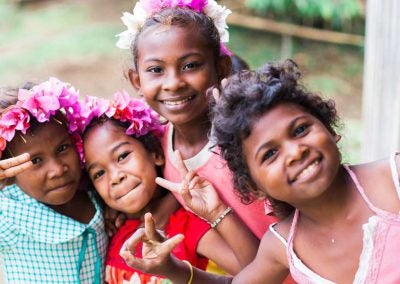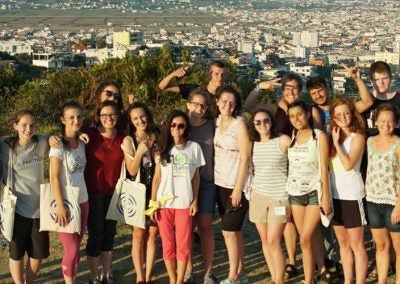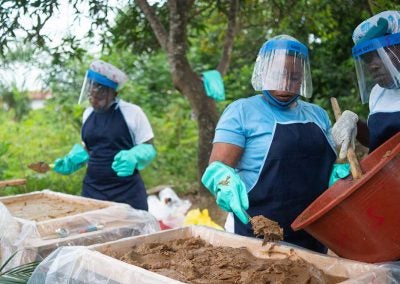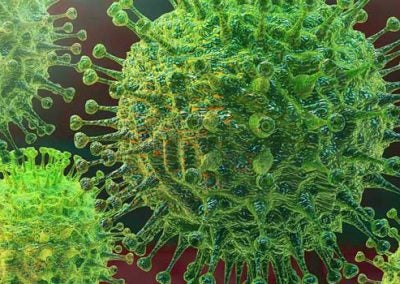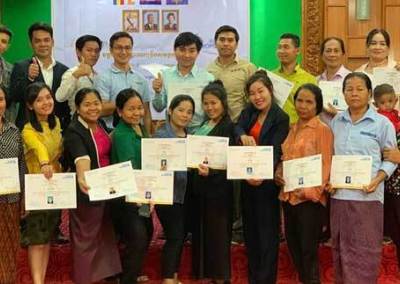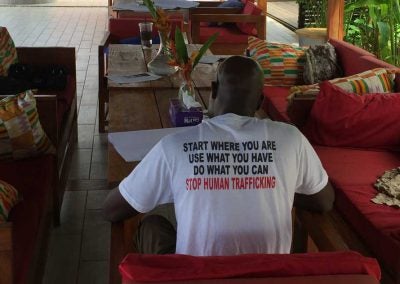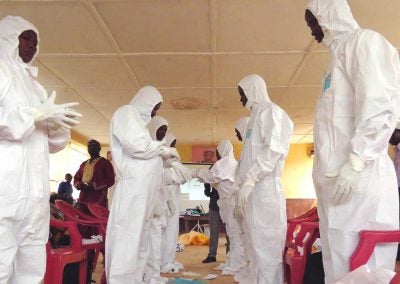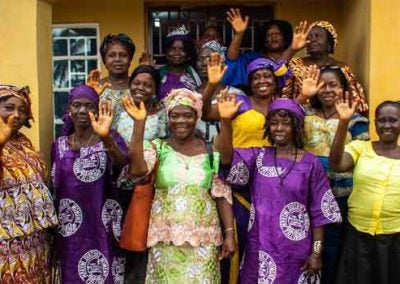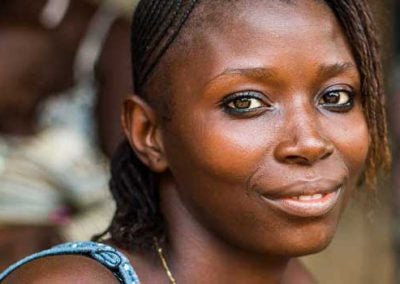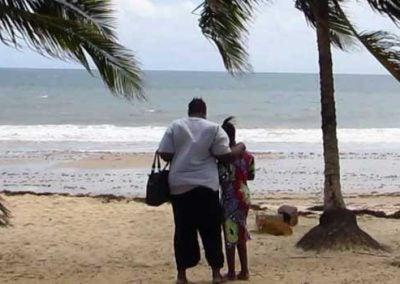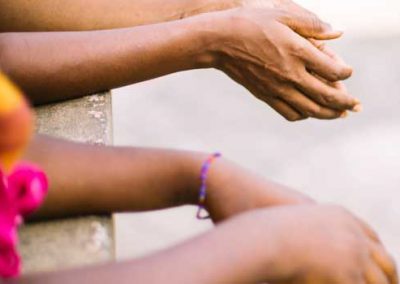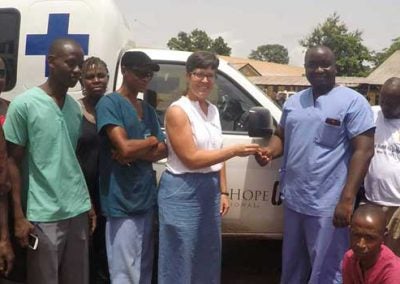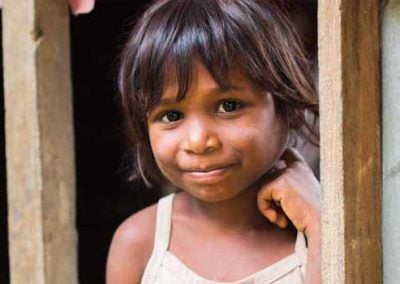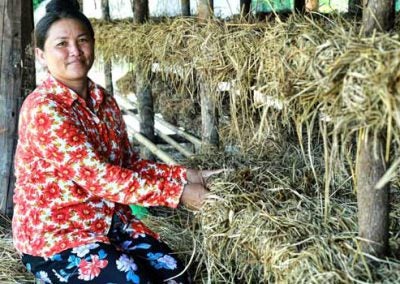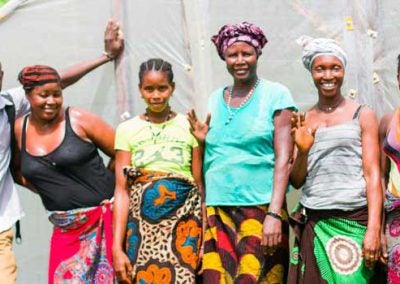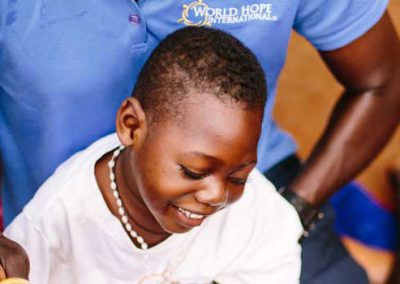COVID-19 Support for Adolescent Girls
An IFC advisory program leveraging the demand on sanitation supplies to equip girls with income generating soap-making skills along with hygiene and protection best practices.
Project Information
Project Status: Active
Start Date: June 2020
End Date: Dec 2020
Countries: Sierra Leone
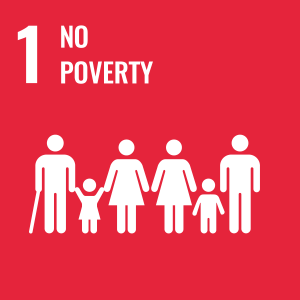
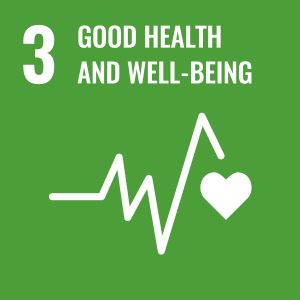
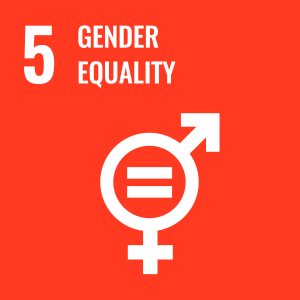
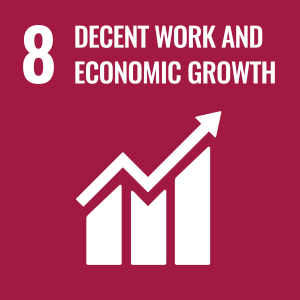
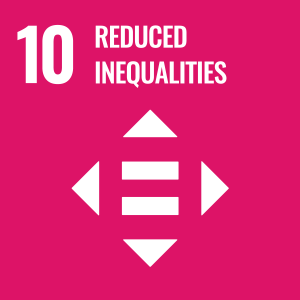
Resources
- Related Blogs
- World Bank Annual Meetings 2020 End Poverty Day Event Recording
- The World Bank: Reversing Setbacks to Poverty Reduction Requires Nations to Work Together for a Resilient Recovery
- Reversing Setbacks to Poverty Reduction Requires Nations to Work Together for a Resilient Recovery
- M’Balu’s Story: Soap-Making Provides Income for School Fees
Using Soap to Empower & Protect Girls
In many communities, traditional gender norms require women to be responsible for family health. As primary caretakers, women are most vulnerable to contracting diseases like COVID-19 when it spreads. Women are also suffering in this pandemic due to a sharp uptick in gender-based violence, and those residing in the villages targeted for this project are no exception.
Soap-making activities will not only support COVID-19 protection and prevention objectives, but will also create an opportunity for income generation amongst the population most at risk of economic hardship and abuse during the crisis – females.
This process also opens a window for the integration of messaging on hygiene and preventative measures, including the importance of social distancing, handwashing, mask wearing and social distancing, as well as protection messaging.
Project Goals
- To train at least 45 adolescent girls (at least 4-5 per villages) on soapmaking and selling in at least 10 villages.
- To support the adolescent girls by providing selected livelihood and related activities as part of a curriculum on life skills, health, protection, and gender equality and opportunities.
Expected Outcomes
- At least 45 adolescent girls are trained, are supported with the right tools and equipment, and have the skills in soap making and selling
- At least 45 adolescent girls are trained and have skills in the commercialization of soap production
- At least 45 adolescent girls are trained and have skills in entrepreneurship
- At least 45 adolescent girls are trained and developed life skills competency in COVID-19 prevention, GBV, gender equality, life skills and more.
Opportunities for Employment
Handwashing is one of the precautionary measures against Covid-19 recommended by the World Health Organization (WHO) and the Sierra Leone Ministry of Health and Sanitation.
As a result, the demand for sanitization products like soap has spiked – and this creates a viable business opportunity that women, youth, and persons with disabilities could take advantage of to earn a living in these uncertain times.
Anti-Trafficking
Prior to the COVID-19 pandemic, many youth and adolescent girls were unable to undertake vocational and skills trainings due to lack of financial ability. Due in part to poverty and desperation, families will often allow their child to be trafficked, generally unknowingly, to bigger towns and cities, with the intention of gaining educational or vocational opportunities.
With the increased demand for sanitization products like soap, a viable business opportunity has risen that women, youth, and persons with disabilities could take advantage of, without the dangers of migrating, to earn a living in these uncertain times.
Gender Equality
Lack of opportunities for adolescent girls contribute to the problems of prostitution, gender-based violence, human trafficking and unwanted pregnancies. These and many other things make pandemics, conflicts, and natural disasters affect women and girls disproportionately. The unequal share of domestic duties which fall on women around the world is being exacerbated by this global pandemic – and the opportunity to learn an in-demand skill should lessen the gender disparity impacts of COVID-19.
How It Works
Poverty, conflict, and gender discrimination make the females we serve very vulnerable to infectious diseases, exploitation and abuse, especially adolescents who are more vulnerable because of their youth. Training on soap-making activities will not only support COVID-19 protection and prevention, but also create an opportunity for income generation amongst the population most at risk of economic hardship during the crisis – women, especially adolescent girls.
World Hope will work with the International Finance Corporation and collaborate with UN Women’s technical trainer in soap-making in order to develop a curriculum; select, train, and equip a core team of training partners, and provide 50 quality training events with groups of 4 to 5 selected girls each on vocational and skill development using local resources.

